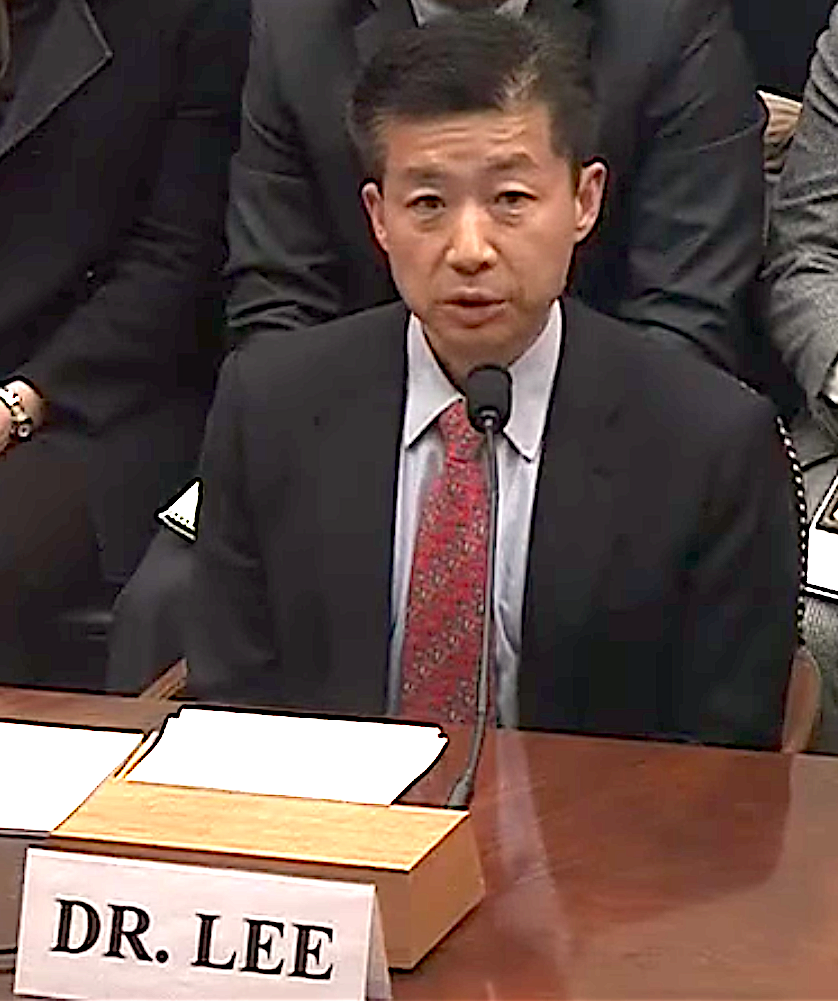Why Do We Appease North Korea?
https://www.nytimes.com/2017/05/17/opinion/why-do-we-appease-north-korea.html
The New York Times
May 17, 2017
February 2, 2018
https://web.archive.org/web/20180105180511/https://www.nytimes.com/2017/05/17/opinion/why-do-we-appease-north-korea.html
2018-01-05
no
Famous Sung-Yoon Lee Quotes
http://www.hillsdale.edu/news/imprimis/archive/issue.asp?year=2010&month=12
Keeping the Peace: America in Korea, 1950–2010
December 2010
Imprimis
March 1, 2013
https://www.webcitation.org/6EyqabQdp?url=http://www.hillsdale.edu/news/imprimis/archive/issue.asp?year=2010
March 9, 2013
yes
Context: Development experts and theorists of democratization take note. South Korea has the same culture, historical legacies, and so on as its neighbor to the North. And yet it is an advanced industrial economy and a thriving democracy that has just, despite its Confucian culture, elected a woman as president. It has managed to reach this high point of prosperity and human dignity because of — to reduce a complex set of phenomena to its minimal essence — different institutions than those in the North: democratic and capitalist ones. (I realize that I may be violating some tenet of doctrinaire realism with this observation. For the less doctrinaire, the contrast between the two Koreas is a useful reminder of why we try and favor and even push for democratic capitalism). Given the stark contrast between the two countries one can safely draw at least one conclusion: There is nothing inherent in culture or history that ipso facto should keep a country poor and enslaved.
https://foreignpolicy.com/articles/2010/02/16/life_after_kim
Life After Kim
February 16, 2010
Foreign Policy
March 1, 2013
https://www.webcitation.org/6EyqdXfyA?url=http://www.foreignpolicy.com/articles/2010/02/16/life_after_kim?page=full
March 9, 2013
no
http://shadow.foreignpolicy.com/posts/2013/02/11/all_you_need_to_know_about_north_korea
North Korea is a nuclear criminal enterprise
Daniel Blumenthal
February 12, 2013
Foreign Policy
USA
February 13, 2013
http://web.archive.org/web/20130708033612/http://shadow.foreignpolicy.com/posts/2013/02/11/all_you_need_to_know_about_north_korea
July 8, 2013
no
Context: At the very least, the ill-advised rush to "peace" is a likely candidate for the historical annals of self-destructive appeasement. The great sacrifices made by Americans in the Korean War, the legacy of the close US-South Korea relationship over the past 60 years, and future US strategic interests in and around the Korean Peninsula should not be sacrificed at the altar of diplomatic peace. Real peace is won by resolve and sacrifice, while ephemeral peace is all too often concocted only by vowels and consonants. (talking about a potential peace treaty between North Korea and the U. S., to replace the decades-long armistice signed in 1953)
Sung-Yoon Lee Quotes
http://www.hillsdale.edu/news/imprimis/archive/issue.asp?year=2010&month=12
Keeping the Peace: America in Korea, 1950–2010
December 2010
Imprimis
March 1, 2013
https://www.webcitation.org/6EyqabQdp?url=http://www.hillsdale.edu/news/imprimis/archive/issue.asp?year=2010
March 9, 2013
yes
“In the surreal world of the DPRK”
A similar, shorter, quote also appears here:
Context: Just imagine if Seoul and Washington vastly increased funding for radio broadcast and other information operations into North Korea, as they well should. In an Orwellian world, “War is peace, freedom is slavery, and ignorance is strength.” In the surreal world of the DPRK, the past 62 years of de facto peace in Korea is war, a life of extreme servitude to the state is freedom, and national strength is preserved by keeping the people ignorant of the outside world. Informing and educating the North Korean people is not only the right thing to do, but also a potentially great leverage vis-à-vis Pyongyang. Moreover, it can save lives, too.
Context: For many South Koreans today, the Korean War is little more than a tragedy of the past or a tale in abstraction. For others, it is a trauma best forgotten. But on Memorial Day, the South Koreans, as a nation, must not forget the suffering and sacrifice in their national historical experience. The lessons of the most traumatic past must be learned and continually relearned, not only to prevent such a tragedy from repeating itself, but also to honor, as one nation, those who made our freedom possible, and to remember that freedom is certainly never free.
The transformation of North Korea will require nothing less.
https://foreignpolicy.com/articles/2010/02/16/life_after_kim
Life After Kim
February 16, 2010
Foreign Policy
March 1, 2013
https://www.webcitation.org/6EyqdXfyA?url=http://www.foreignpolicy.com/articles/2010/02/16/life_after_kim?page=full
March 9, 2013
no
A similar, shorter, quote also appears here:
